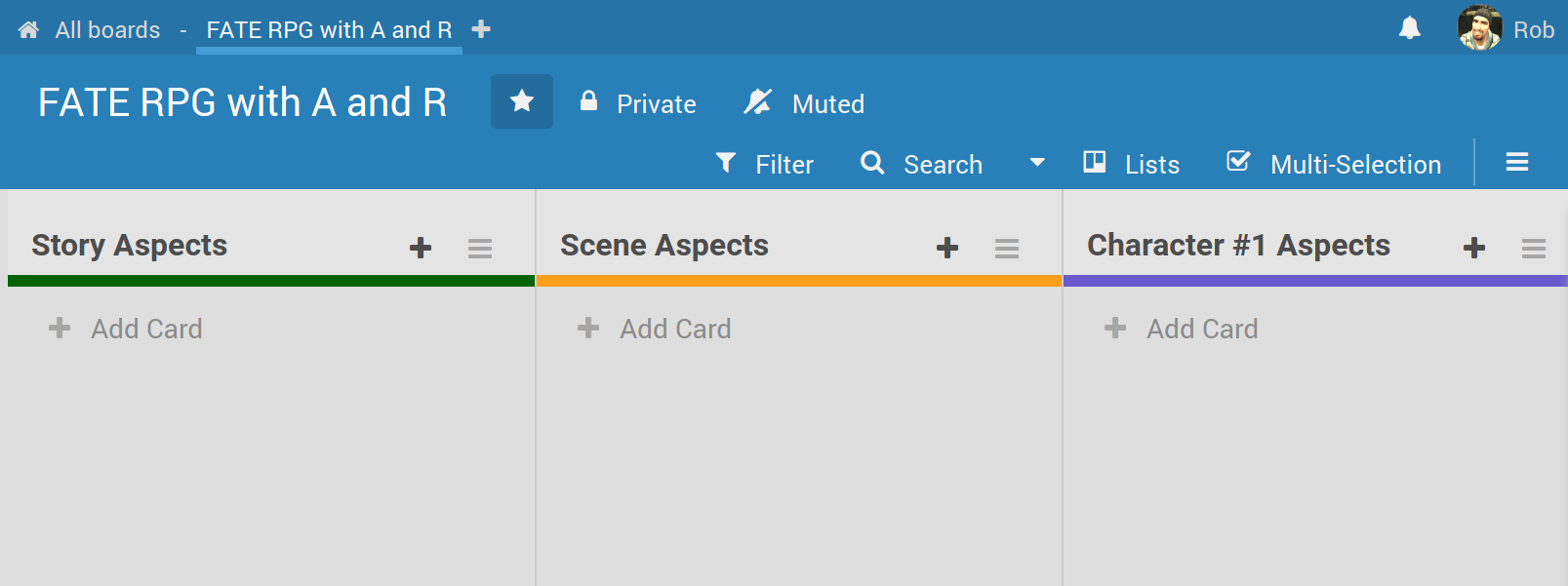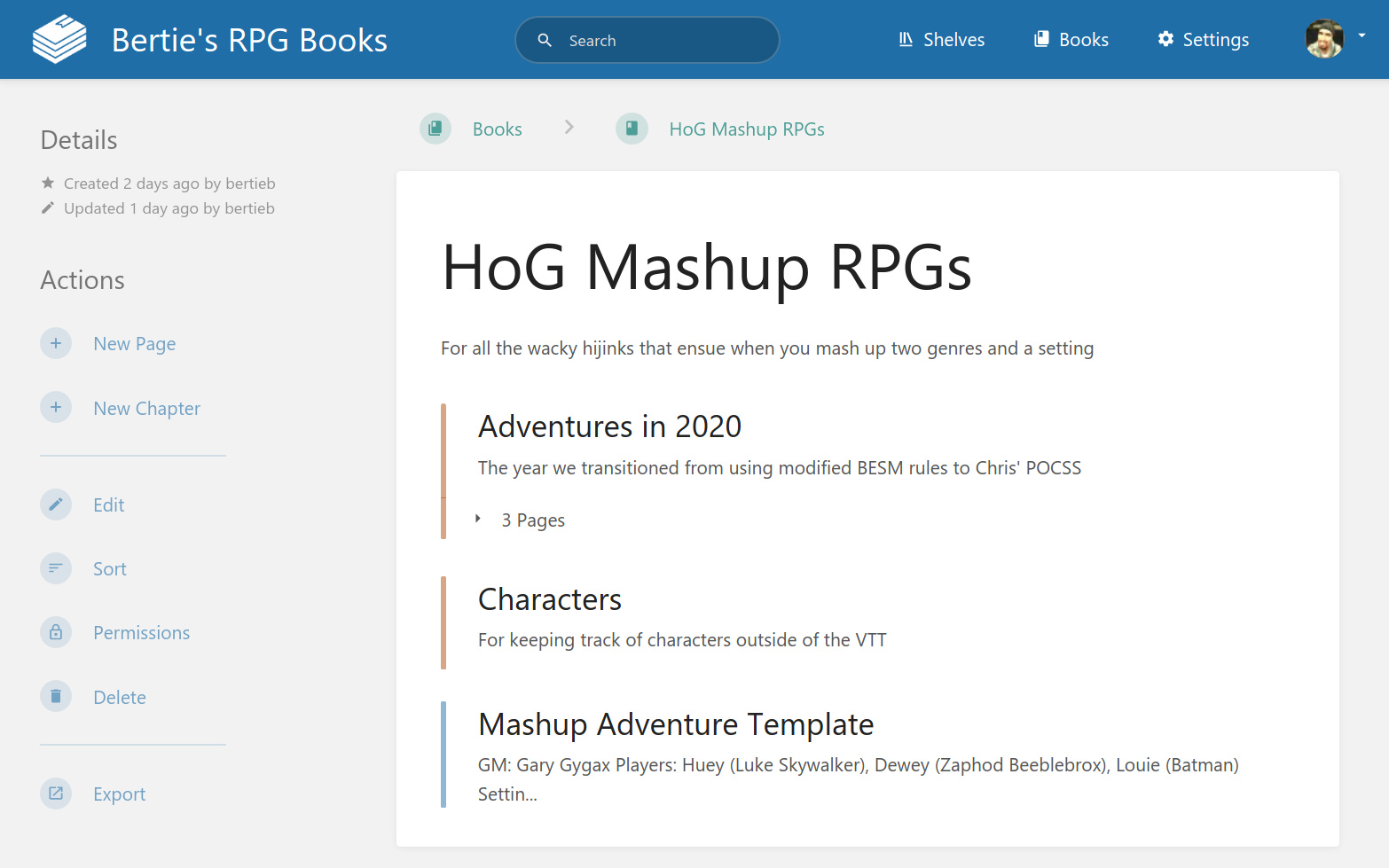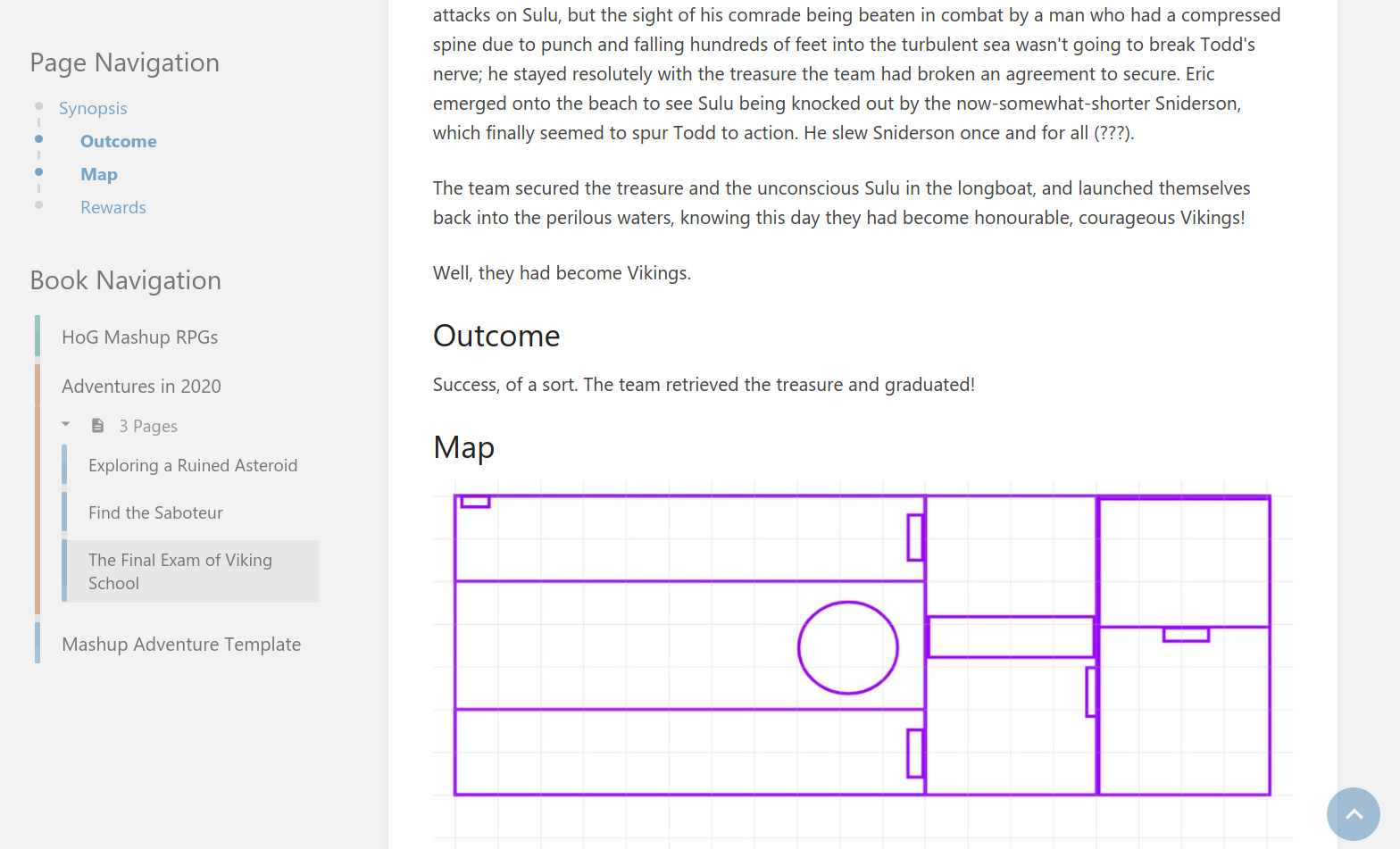Helping us help you help us all
The coronavirus lockdown is a great opportunity to try out more RPG gaming, as I previously mentioned. Playing RPGs in person generates a bunch of content, some of which is ephemeral and some of which is more permanent. Playing online, it would be nice to both: i) have something straightforward to use for these bits of content, and ii) be able to save them for future reference and enjoyment.
I’ve been self-hosting services for as long as I can remember — this blog dates back over fifteen years (!) — so this is an avenue I’d like to explore for this use case. Self-hosting isn’t for everyone, and does have its downsides. Especially for content my friends and I create, I’d rather not be beholden to the whims a third party for access and retention. For non-content bits, it is reasonable to consider third parties.
Not Self-hosting
The bits I am not self-hosting but could: instant messaging is mostly done via WhatsApp. I am not a fan of their privacy policy, but it’s what my friends use and the network effect works against me here. However, if we were to migrate away I’d suggest Matrix (probably via Riot) to them, as I’m already there running my own homeserver, it handles communications well and can do end-to-end encryption where needed (and by default in future). Matrix also does bots (which I also run), and could do dice rolls if needed; so it could replace Discord for most.
For video communication I would explore Vector first as it runs over Matrix and I have some familiarity with that. Alternatively, Jitsi (SIP) has been around for a while and seems like a reasonable choice.
Lastly, for the VTT (virtual tabletop) software, Foundry VTT is an option. I have yet to check this out fully, but a ten minute glance while writing this looks very promising (it can even be Dockerised!), and I have seen a couple folks speak highly of it. It has yet to be released, however.
Self-hosting
For Fate specifically, I will be using a Trello-like system as recommended by Randy Oest for the cards/decks to track aspects. For this I turned to Wekan. The interface is smooth. I have yet to use it fully but it looks something like:

I will try to remember to update the image above once we’ve done an actual session!
For keeping track of worlds, sessions, characters and the like a wiki is the obvious choice to let multiple people contribute and end up with something that looks decent. BookStack looks and acts slick, so I went with that. If you prefer, there are dozens-to-hundreds of other wiki systems. It looks good and is easy to edit; I ‘accidentally’ spent cough minutes writing up a session because it was so smooth.

I also like the (shelf /) book / chapter / page approach, which I think lends itself perfectly to keeping track of RPGs.

It also works well for reading as well as writing.
I got Wekan and Bookstack running on a Docker host, which was reasonably straightforward, details to follow.
Pingback: Running Foundry VTT with Docker – Bertie Baggio's Wonderland